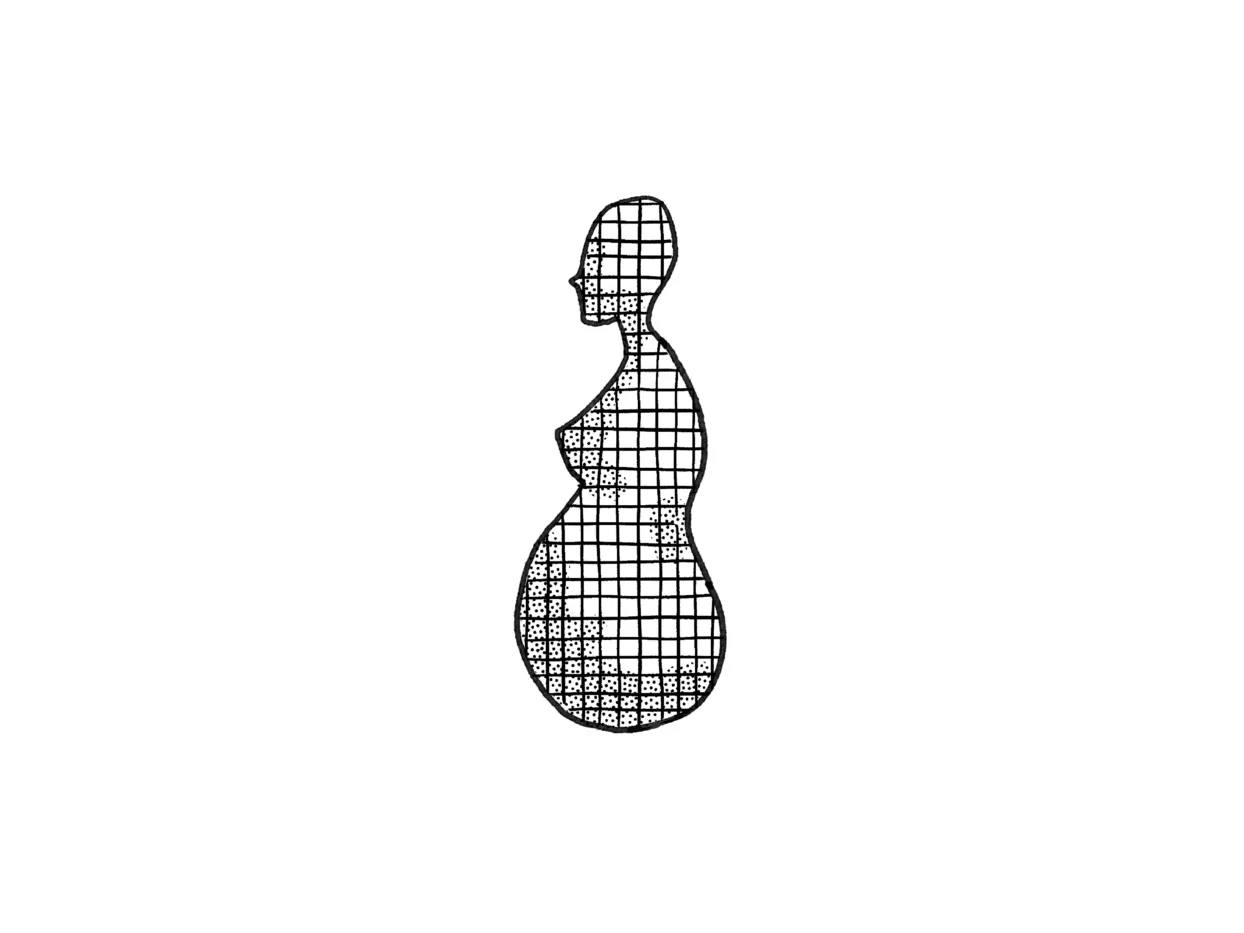
Image by Ivy Sanders Schneider

Image by Ivy Sanders Schneider
“Every miscarriage is a work accident,” Silvia Federici wrote in 1974, in the essay “Wages Against Housework.” Federici’s argument is simple. If housework is work — if cooking, cleaning, childbearing, and child-rearing are both tiring for the worker and productive for society — then why shouldn’t it be waged? What, besides a very long and successful campaign to dupe women, could lead them to do so much labor without pay?
Objections to this argument have tended in two directions. The first is that paying women for housework would keep them at home and out of other workplaces, that it would gild and thereby strengthen the domestic chains. Federici disagrees: in her view, demanding that someone pay you for work is the “first step towards refusing to do it.” The second objection is that the duties and pleasures of family life should not be degraded with money. But, Federici asks, aren’t they already? The happily married young mother who is dependent on her husband’s income barters her sex and rents her womb in order to secure room and board — she is, in a certain sense, both a prostitute and a surrogate, even if her working conditions are pleasant enough that it’s in poor taste to mention.
Of course, pregnancy differs from other kinds of housework because in almost all cases it must be performed by women. If all dishwashing were paid — if, say, we all stopped cooking at home — then the dishwashing labor supply would shift from unwaged women at home to poorly waged immigrant men in restaurant kitchens. Not so with pregnancy. The idea of paying for a task that requires a womb alarms people of many political stripes: paternalists, because they don’t want women to be financially independent, but also feminists, because they worry that once women are paid to get pregnant, they will not want — or be allowed — to do other things instead. This latter fear is not unfounded. In the last decade, China’s reversal of its one-child policy and expansion of maternity benefits, which sometimes include cash bonuses, has significantly reduced the hours that Chinese women work outside of the home.
Perhaps partly because of the fear of turning women into baby factories, programs that offer payments to new or expecting parents tend to frame the cash not as a salary but as a social intervention, as in the United Kingdom’s “Sure Start Maternal Grant” or Manitoba’s “Healthy Baby Prenatal Benefit.” A San Francisco initiative that provides a monthly stipend to black and Pacific Islander pregnant people making below a certain income justifies the payments by pointing out that black people in San Francisco endure half of all maternal deaths and fifteen percent of all infant deaths, despite having only four percent of overall births.
As an exercise in egalitarianism, unconditional cash transfers to pregnant people seem to be efficient. Even small payments — the Manitoba program gives each low-income participant only $81 a month — have significantly improved newborns’ birth weight and breastfeeding, which are associated with a host of positive physical and mental health outcomes. But I wonder what we lose when we view such payouts as welfare rather than as wages for services rendered to society at great personal risk. In 2021, a pregnancy in the United States was about two times more likely than a year of police work to result in death, and 25 times more likely to do so than a year of active military ground service. Many police officers and soldiers find great fulfillment and pleasure in their jobs; some have dreamed about doing such work since they were children. Generally, though, they don’t work for free.
S.C. Cornell is a writer who lives in Mexico City.